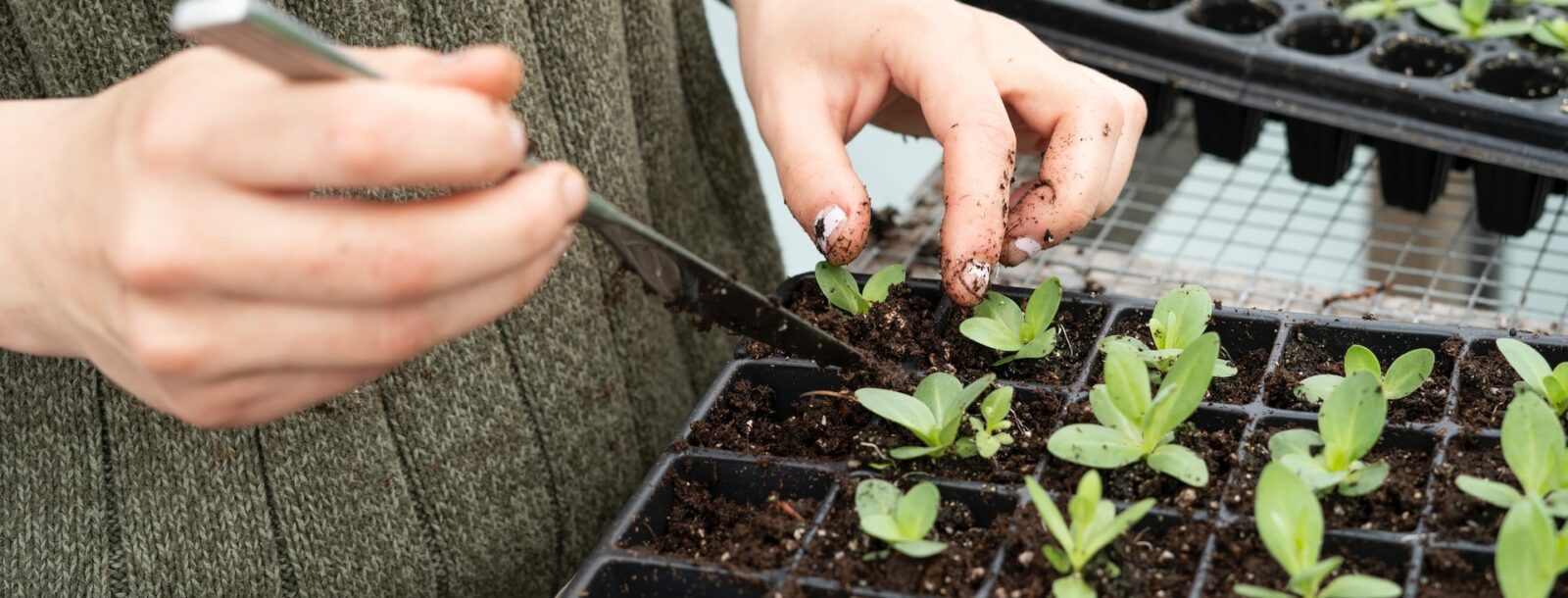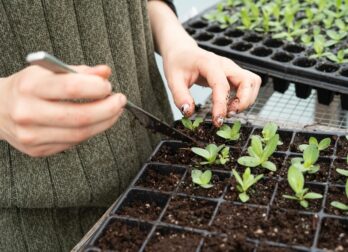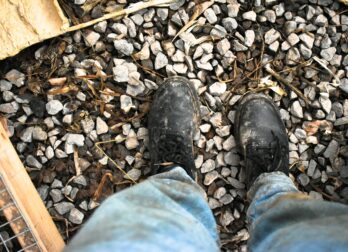
Resilience and resistance in UK agroecology
By Rob Wannerton
The wellbeing of agroecological business owners is threatened by the pressures of operating in an industrial food system. Social Impact Manager Rob Wannerton shares the Real Farming Trust’s latest report
Our most recent social impact report, Supporting Growth: Resilience and Resistance in UK Agroecological Businesses, shares the experiences of people running small-scale food businesses, reflecting on their motivations, the challenges, and the impact on their lives.
Drawing from interviews with business founders, including new entrants and those with previous business experience, the report discusses the challenges of creating a new food system while working within the constraints of the current productivist model, based on consumer expectations of constant availability of seasonal produce, low prices, and one-stop shopping,
“I think we’re still making progress… it can be incredibly frustrating, because any progress any of us can make is limited. And when you have such big goals, not just for [my business], but for that type of food movement. And then you see so many people working so hard on it, and the progress is, you know, encouraging but limited, it can be demotivating as well, so, you know, you don’t always want to get out of bed in the morning.”
“It’s just a different vibe, when you’re the one that’s driving it forward, whereas when you’re a volunteer there is an absolution of responsibility, which is very calming and freeing, isn’t it? Because you sort of get told what to do? And then do it and then you go home.”
“We’re having a really tough time… in terms of what gets me up it’s trying to make sure it’s still here in a year, that’s kind of where I am just now.”
“What we’ve realised is that at this scale, which is very small, it’s like a cottage business, a cottage industry really isn’t it? So it’s like, if it was just me, and I had low outgoings, and I wasn’t trying to pay off a loan and ultimately run a business, it would work financially.”
By highlighting the mental and physical strain shared by some business owners, the report underscores why the Real Farming Trust, through its funding programme, LEAP, places such importance on social impact as a sometimes overlooked element of agroecology, questioning whether a business can genuinely be considered sustainable if it isn’t physically and personally sustainable for those who run it.
Exploring the links between economic and social sustainability, the report emphasises the importance of access to support and mentoring as key elements in building resilience for these businesses. The role of networks in providing emotional as well as practical support during challenging development stages is also highlighted.
For organisations supporting the movement, the challenge lies in maintaining the mental and physical health and wellbeing of everyone involved. Simultaneously, there’s a need to support businesses and their leaders in developing and sustaining a business mindset, along with providing necessary skills when needed.
Beyond practical business support such as coordinating and networking, the report asks whether more can be done to promote additional forms of support, especially for the wellbeing of business founders, or more targeted support for new entrants. How can we grow networks of businesses which enable founders to thrive, and to stay involved beyond a time when they are young, fit and free from other responsibilities?
Looking at the challenges of growing a market, the report also explores the complex relationship between consumers and food, posing the question: How can we challenge perceptions of sustainable food in an increasingly politicised cultural dialogue which has evolved from Cranks to Tofu Eating Wokerati, and win more customers from supermarkets?
The report discusses the catch-22 situation of pricing. Businesses have to decide whether to price low enough to compete with supermarkets and thereby bring costs to the business which make it unsustainable, or price at a level which embeds the perception of sustainable food as niche, awkward, or a luxury, maybe best saved for a weekend trip to a farmers’ market or local farm shop.
“I suspect a lot of our customers find it easy to substitute our produce… with produce bought from somewhere else that’s local… and think it’s alright, it’s local… For us, that’s deeply problematic, because of how most non-organic produce is grown and how much of a disaster that is for the environment.. and you’re kind of bringing that disaster zone to your local area.”
One reliable route should be to target foodies, people who identify as having a strong interest in food, and particularly in provenance or terroir, but mainstream foodie culture is more likely to be driven by social media trends and, ultimately, mainstream food producers. A 2022 study conducted on behalf of Science for Sustainable Agriculture, which surveyed self-identified foodies living in rural areas with high levels of local food production, reported generally low levels of understanding about sustainable food.
Although over 80% of respondents felt high concern for the protection of natural habitats and protecting natural resources, awareness and understanding of specific terms relating to agriculture was low, and over two-thirds of respondents had never heard of agroecology. Overall, respondents showed a generally loose understanding of the concept of ‘natural’ in relation to food production.
This level of understanding, encouraged by supermarkets all promoting their own interpretations of sustainability, increases the difficulty of reaching and retaining potential customers who may be hesitant due to their established habits, socio-economic factors, or cultural foodways. If, as suggested by one founder, the primary need is not for more growers, but more retailers to provide an outlet, how closely should we aim for that to match the supermarket experience, and what is needed to win more customers, without alienating the existing supporters?
With founders themselves expressing worries about changes which could be perceived as selling out, whether through marketing being too slick or premises too glossy, and how far they are willing or able to go in adapting to the expectations of potential customers, there are fundamental questions about the relationship between mission and business which will be taken forward in the next round of the social impact programme.



